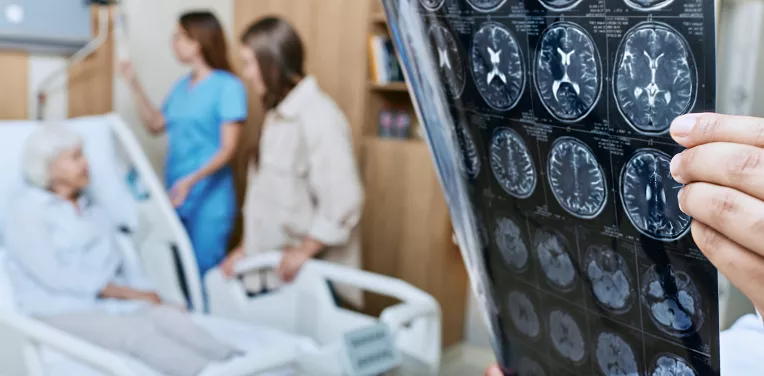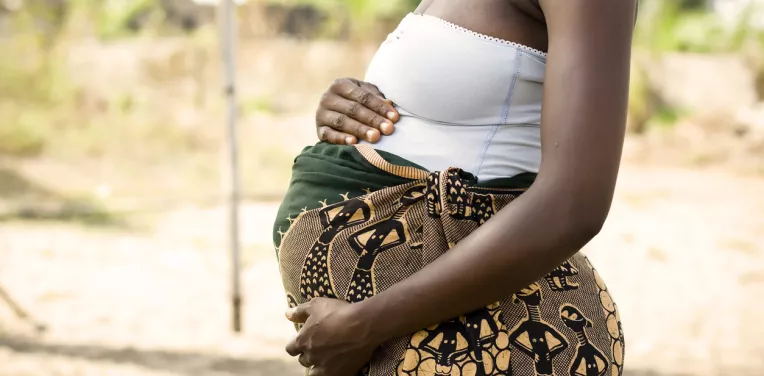Cochrane has been improving people's lives and global health for more than 30 years.
Our unique network of researchers, health professionals, patients and dedicated individuals has improved healthcare, treatment decisions and thousands of lives around the world.
In numbers
9,531
Cochrane reviews published
43,000,000
full Cochrane reviews read in Cochrane Library in the past 3 years
66%
of new WHO guidelines in the past 5 years cite at least 1 Cochrane review
59,000
translations of our plain language summaries
20
languages in which we share health evidence
43%
of volunteer translators are from low- or middle-income countries
186,700
Cochrane members and supporters
2,850
people in our Patient and Public Network
200
countries and territories represented in our network
How we deliver impact
We have improved treatment for life-threatening diseases
We have published more than 9,000 Cochrane reviews on a vast range of health topics. Our findings have changed health practice across the world, improving the survival rates of people with malaria, tuberculosis, breast cancer and traumatic blood loss, people in intensive care, premature babies, pregnant women, and many others.
We have made advances in care for common health conditions
Cochrane reviews go beyond emergency medicine. Our evidence has influenced how we are treated for back pain, depression, long Covid, eczema, Parkinson's and ADHD, to name a few. We have advanced routine care for many groups including women in labour, newborn babies, people who need blood transfusions, catheters or rehabilitation, those with mental health conditions, and elderly people who have had a fall or an infection.
We have improved treatments and quality of life for some of the most vulnerable in society: people with mental health conditions, histories of abuse or who are socially isolated. We work to make our findings accessible to different cultures and contexts, so that people from all backgrounds can benefit from them, especially those in low- and middle-income countries.
We have confirmed how diseases can be prevented
We have confirmed effective ways to prevent breast cancer, malaria, HIV/AIDS, tobacco-related diseases, obesity and other diseases, saving millions from suffering and loss. Prevention is better than cure.
We have proved what doesn't work
We have examined existing procedures, such as pre-birth preparations, spinal cord stimulation and catheter changes, to check whether there is a strong basis for them. We have found some longstanding practices to be unhelpful – or even harmful – and many have been stopped. This has saved many people and health professionals from unnecessary procedures, and enabled better use of time and resources. For example, our review on ivermectin for preventing and treating COVID-19 showed there was no evidence to support its use.
We have promoted habits that keep us healthy
Our findings have influenced how people far and wide look after their health on a daily basis – such as what we eat, how we brush our teeth and the glasses we wear. We have provided guidance on how to exercise safely, give up smoking and alcohol effectively, and maintain and restore physical and mental fitness at all stages of life.
We have shown how to strengthen health workers and infrastructure
We have shown how to build health workers' resilence and reduce their stress in the face of COVID and other health crises. We have reviewed new tools and technologies, to see how they can be best harnessed to strengthen health care and systems. We have identified effective ways that patients can help improve the delivery and development of health services, and we have evaluated strategies to improve uptake of vaccines in low- and middle-income countries.
Examples of impact

Saving patients from life-threatening stroke
An influential Cochrane review has changed how hospitals across the world treat stroke patients, saving thousands of lives and improving care for hundreds of thousands more.

Video: Traumatic blood loss and tranexamic acid
We showed that tranexamic acid is a life-saving, low-cost drug that helps stop bleeding. It is now routinely used by ambulance services and armed forces in many countries, and is on the World Health Organization's Essential Medicines List.

Cerebral palsy: magnesium sulphate to protect premature babies
We showed that magnesium sulphate protects premature babies against cerebral palsy. It is now widely given to women at risk of giving birth prematurely. We confirmed the evidence to encourage more countries to give the treatment.

Premature babies: caffeine therapy for survival and reduced disabilities
We showed that caffeine therapy improves survival rates and reduces disabilities in premature babies. Our findings were immediately incorporated in World Health Organization recommendations on the care of preterm infants.

Malaria: findings from 70+ reviews into guidelines
We showed insecticide-treated bednets reduce child deaths from malaria by 20%. Our malaria evidence and expertise were used to develop WHO malaria treatment and control guidelines.

COVID-19: "rigorous, trustworthy and balanced reviews"
Our review on a new COVID-19 treatment jointly won the first University of Cambridge Harding Prize for Useful and Trustworthy Communication. We have published more than 70 resources in 11 languages on COVID-19.

Lung disease - influencing treatment worldwide
Chronic obstructive lung disease is the number 3 cause of death worldwide. The Global Initiative for Chronic Obstructive Lung Disease includes more than 40 Cochrane reviews in its treatment guideline, the most widely followed worldwide.

Induction of labour in under-resourced settings
Our evidence informed WHO guidelines that aim to improve quality of care and outcomes for pregnant women undergoing induction of labour in under-resourced settings.

Catheter changing: reducing pain and cost
Our reviews on changing certain types of catheter directly informed UK guidelines, saving millions of hospital patients from unnecessary pain and potentially saving the NHS £40 million over 5 years.
 Our work to improve global health supports the Sustainable Development Goals
Our work to improve global health supports the Sustainable Development Goals
All our work directly helps deliver the United Nations' Sustainable Development Goal 3: Good health and wellbeing.
Our work has wide-reaching ripple effects, which achieve progress towards several other Sustainable Development goals, including: Goal 4: Quality education; Goal 5: Gender equality; Goal 6: Clean water and sanitation; Goal 9: Industry, innovation and infrastructure; Goal 10: Reduced inequalities; Goal 16: Peace, justice and strong institutions; and Goal 17: Partnerships for the goals.
We work with others to build a better world through global health
We have close strategic partnerships with the World Health Organization, national governments and health ministries, and other evidence synthesis organizations including Campbell and JBI, which help multiply the impact of our research.
National governments including Australia, Denmark, Germany and the UK provide crucial funding for our work, and our international groups rely on funding from local universities and agencies to make their work happen. We receive income from research and teaching institutions in the form of grants and subscriptions to our library, teaching resources and review-writing software. We also provide tailored review services to public health bodies and other organizations.
We are always keen to hear from potential partners and funders who share our principles and vision to bring better health to all.
Public administrations should do all that's in their hands to continue to promote and strengthen evidence-based healthcare. Since its creation in 1993, Cochrane has become a global gold standard for evidence-based health due to its ability to provide rigorous information for professionals and health systems around the world, making this project worthy of all our support.
Alberto Merchante-González, Chief of Public Health, Spanish Ministry of Health

